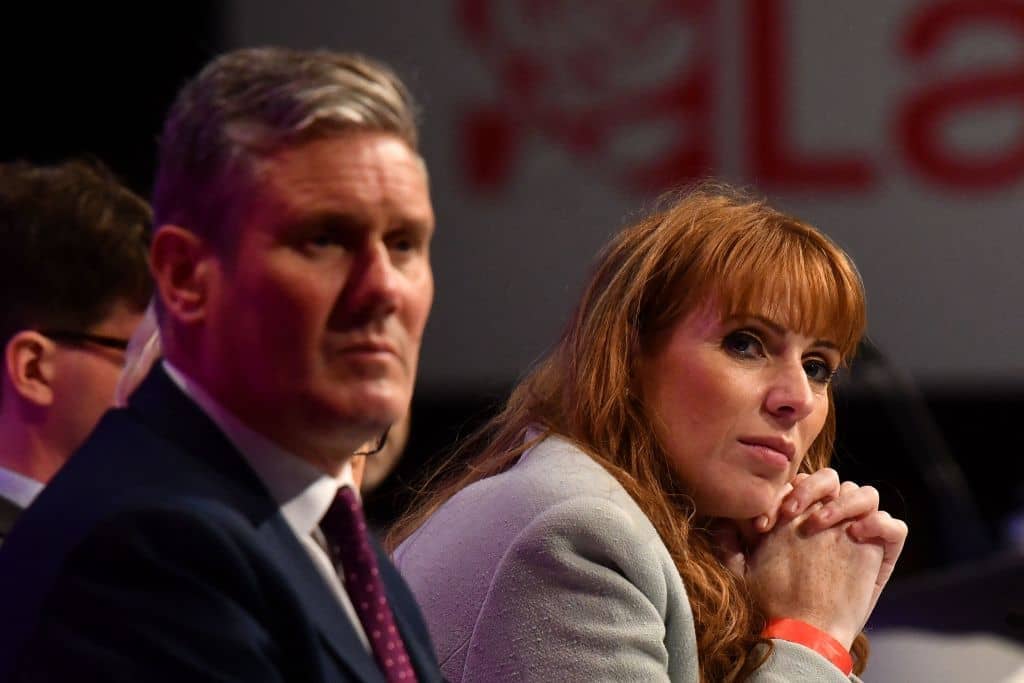Keir Starmer has a new front bench. He has conducted his second reshuffle in the space of a year, but this time he’s actually managed to get the changes he was after.
A key theme of this reshuffle has been giving Labour a better chance of being heard. Many of the departures today have involved figures who were underperforming in key roles: Nick Thomas-Symonds, for instance, was very well-liked in the party but struggling to get much purchase even against Priti Patel’s growing political mess on human trafficking in the Channel. He has now been replaced by Yvette Cooper, who has done this brief before and who has grown even more in stature as chair of the Home Affairs Committee. It’s a mark of how much more prestigious select committees have become that it wasn’t a given Cooper would say yes when Starmer asked her.
David Lammy takes over as shadow foreign secretary, which is a bold move. It also underlines that this reshuffle really is about getting attention, given his general approach to politics and campaigning. It does mean that Lisa Nandy is in a much more appropriate brief: she is now shadowing Michael Gove in the new Levelling Up department. This makes far more sense than sending her to talk foreign affairs given her long-running interest in towns and Labour’s need to win back the ‘red wall’ seats that Gove plans to level up. Sources around Starmer are also pointing to other ‘red-waller’ MPs in key domestic briefs such as Jim McMahon (Defra), Louise Haigh (Transport), Bridget Phillipson (Education) and Johnny Reynolds (Business).
Similarly, Ed Miliband leaving the Business portfolio makes sense given he is not exactly baggage-free on the question of Labour being pro-business. He excelled himself during the COP summit and showed how much his experience and time away from the frontline have improved him as a communicator on climate.
Wes Streeting gets a big promotion from the child poverty brief (one of the made-up jobs that don’t shadow real ministers that Starmer now seems to have dispensed with) to Health. He follows a very long-serving shadow health secretary Jon Ashworth (who moves to work and pensions) but brings with him an ability to distill complicated issues into clear campaign messages and a big media profile already. Once again, this is about getting attention.
But at the top of the list of names is a figure with more jobs than the rest of the shadow cabinet put together, almost. Angela Rayner continues as – deep breath – deputy leader, shadow first Secretary of State, shadow chancellor of the duchy of Lancaster, and shadow Secretary of State for the future of work.
Up to now, she has been far better than anyone in the shadow cabinet, including Starmer, at getting attention. She has been particularly effective of late on the case of Tories, sleaze and second jobs. Whether or not Starmer really needs to consult any of his colleagues including the deputy leader before he starts a reshuffle is one thing. But Rayner managed to outwit him again today, making the early narrative about his failure to square her once again before starting the moves. She has all those jobs because he botched the last reshuffle so badly. Starmer spoke to her between her morning broadcast round where she said she didn’t think there was a reshuffle and the speech she had been promoting on said broadcast round. But he then started his changes while she was giving her speech, suggesting either that he wanted to overshadow whatever Rayner was doing, or that he hadn’t thought about the way this might play. His hope is presumably that the moves today will lead to a longer-term overshadowing of his biggest rival.
Labour’s Shadow Cabinet in full:
Deputy Leader, Shadow First Secretary of State, Shadow Chancellor of the Duchy of Lancaster and Shadow Secretary of State for the Future of Work: Angela Rayner
Shadow Chancellor of the Exchequer: Rachel Reeves
Up to now, Rayner has been far better than anyone in the shadow cabinet, including Starmer, at getting attention
Shadow Secretary of State for Business and Industrial Strategy: Jonathan Reynolds
Shadow Secretary of State of Climate Change and Net Zero: Ed Miliband
Shadow Secretary of State for Levelling Up, Housing, Communities & Local Government: Lisa Nandy
Shadow Secretary of State for Defence: John Healey
Shadow Secretary of State for Digital, Culture, Media and Sport: Lucy Powell
Shadow Secretary of State for Education: Bridget Phillipson
Shadow Secretary of State for Environment, Food and Rural Affairs: Jim McMahon
Shadow Secretary of State for Foreign, Commonwealth & Development Affairs: David Lammy
Shadow Secretary of State for Health and Social Care: Wes Streeting
Shadow Secretary of State for the Home Department: Yvette Cooper
Shadow Secretary of State for International Trade: Nick Thomas-Symonds
Shadow Minister of State at the Cabinet Office: Jenny Chapman
Shadow Secretary of State for Justice: Steve Reed
Shadow Secretary of State for Transport: Louise Haigh
Shadow Secretary of State for Women and Equalities, Party Chair and Chair of Labour Policy Review: Anneliese Dodds
Shadow Secretary of State for Work and Pensions: Jonathan Ashworth
Shadow Attorney General: Emily Thornberry
Shadow Cabinet Minister for Mental Health: Rosena Allin-Khan
Shadow Cabinet Minister for International Development: Preet Gill
Shadow Chief Secretary to HM Treasury: Pat McFadden
Shadow Secretary of State for Wales: Jo Stevens
Shadow Secretary of State for Scotland: Ian Murray
Shadow Secretary of State for Northern Ireland: Peter Kyle
National Campaign Coordinator: Shabana Mahmood
Shadow Leader of the House of Commons: Thangam Debbonaire
Shadow Chief Whip: Alan Campbell
Shadow Leader of the House of Lords: Angela Smith
Opposition Chief Whip in the House: Roy Kennedy







Comments